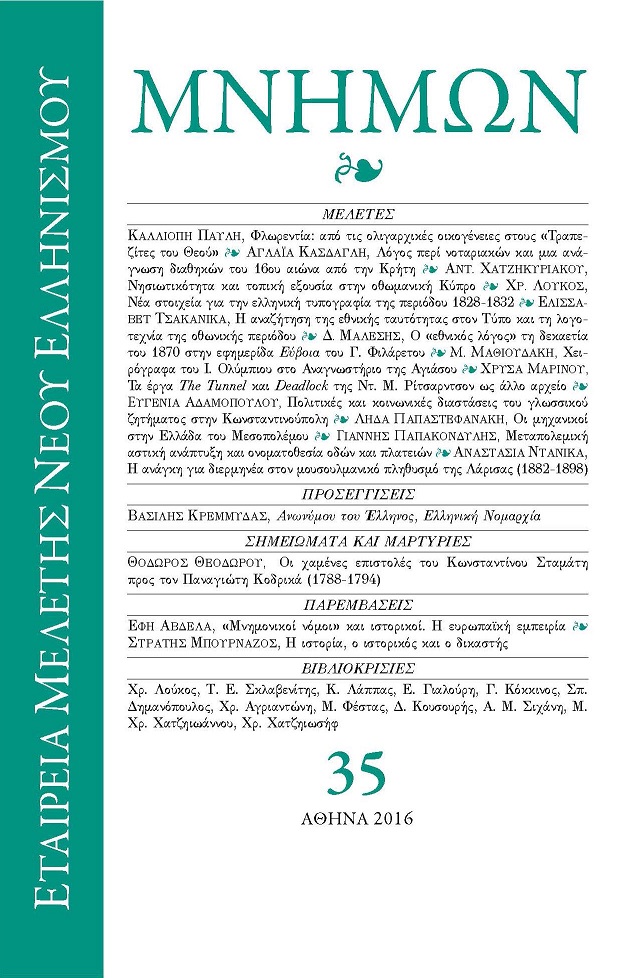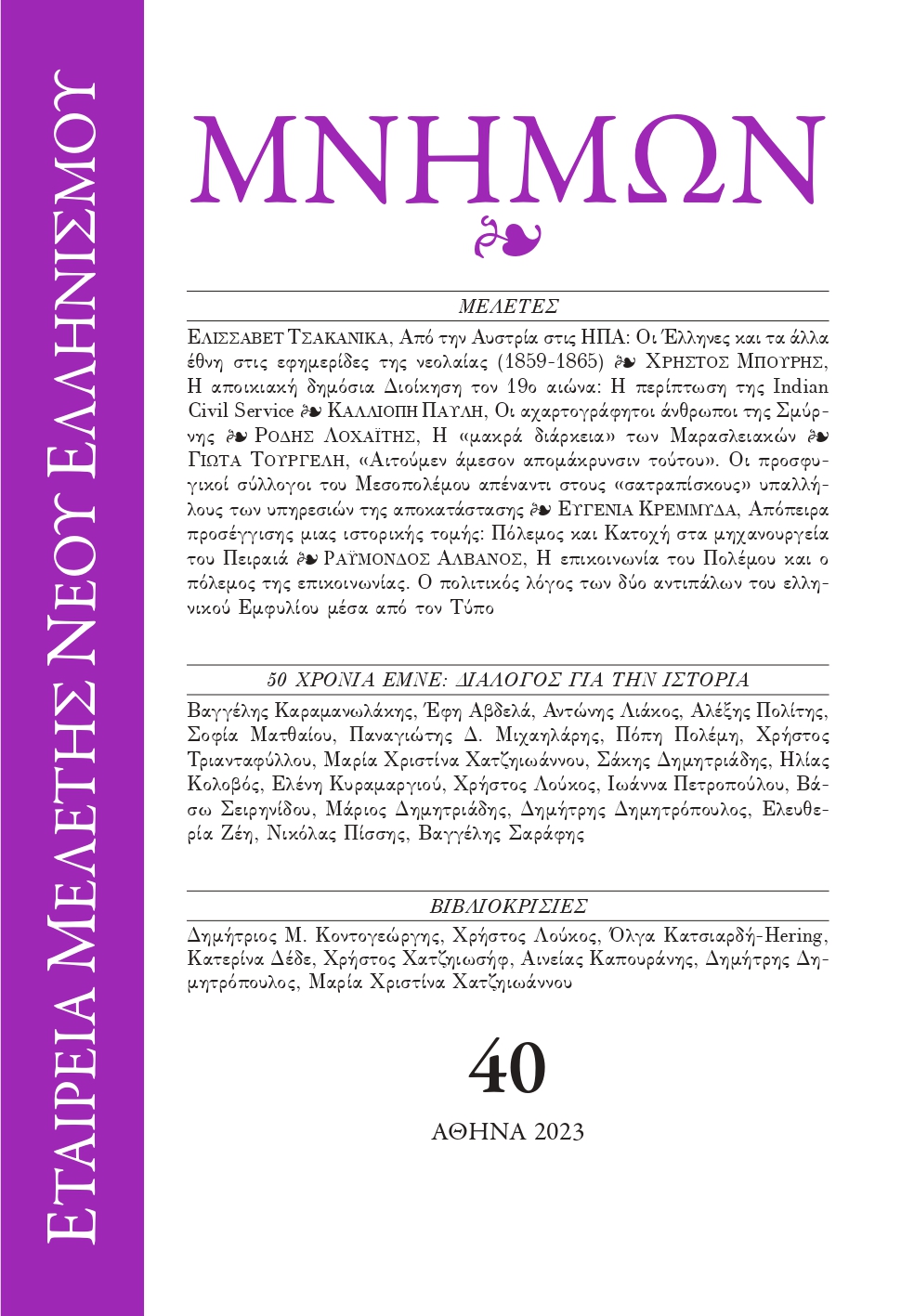Florence: from the oligarchic families to the “Bankers of God”. The guilds, the wealth, and the meaning of “citizen”
Abstract
We owe to Dante and to Machiavelli; they bequeathed to us the chiaroscuro Florentine world, steeped either in the most charming tales or in the doctrine of hegemony. However, what about the period that flows between the late medieval age and the dawn of Renaissance? The history of the most outstanding citystate of central Italy usually comes to us through onesided narratives. We are familiar with its parexcellence art and the renaissancial interpretation of man; the activities linked to trade, to wool merchants and bankers, sponsors of artists that beside their huge impact on the birth of the Renaissance set the origins of the modern banking system. However, we are generally unaware of the city’s povertystricken people, labourers who produced the notorious Florentine wealth. Therefore, the paper intends to shed light on the two societies inside the community; the wealthy Families alongside the minimumwage workers of the guilds: although they were also taxed for the wars and the constructions of secular and religious buildings, contributing to the city’s safety and beautification, they were excluded from political rights. To enter the reality of the late 13th and early 15th century Florentine life, one has to penetrate beneath the varnish of Priorato delle Arti and its selfinterest, down to the common peoples’ actual lives. Based on a set of chronicles, the paper presents the two “faces” of Florence aggregating into six broad cases, i.e., (1) Guelphs and Ghibellines, (2) the strengthening of the Guilds, the increasing division of labour and the wages, (3) the wealth of the Families and the political elites network, (4) the Monte comune financial system and the fiscal crisis, (5) the labourers, considering as part of the community but having a limited role in it, (6) the republican citystate followed by the centralization of political partiesauthoritarianism. A heterogeneous world of patronworker relations and civilpolitical movements developed at the same stage, revealing that the people’s identification with the activities of the community along with the class struggle led to the emergence of the “citizen”.
Article Details
- How to Cite
-
ΠΑΥΛΗ Κ. (2019). Florence: from the oligarchic families to the “Bankers of God”. The guilds, the wealth, and the meaning of “citizen”. Mnimon, 35(35), 11–41. https://doi.org/10.12681/mnimon.20051
- Issue
- Vol. 35 (2016): Μνήμων
- Section
- ARTICLES

This work is licensed under a Creative Commons Attribution-NonCommercial-ShareAlike 4.0 International License.
The copyright for articles in this journal is retained by the author(s), with first publication rights granted to the journal. By virtue of their appearance in this open access journal, articles are free to use (with the exception of the non-granted right to make derivative works) with proper attribution for non-commercial uses (licence Creative Commons 4.0). EKT/NHRF retains the worldwide right to reproduce, display, distribute, and use articles published in Mnimon in all formats and media, either separately or as part of collective works for the full term of copyright. This includes but is not limited to the right to publish articles in an issue of the Journal, copy and distribute individual reprints of the articles, authorize reproduction of articles in their entirety in another EKT/NHRF publication, and authorize reproduction and distribution of articles or abstracts thereof by means of computerized retrieval systems.Downloads
Download data is not yet available.




